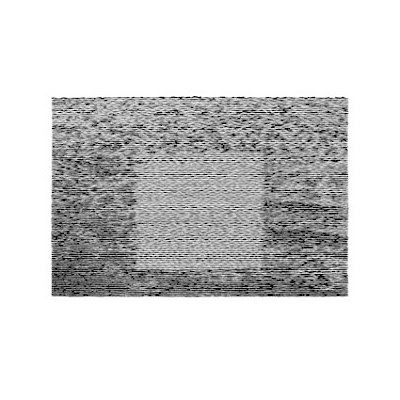Album Review: Grouper - Grid of Points
By October 2014, less than two full months on the job as a
writer for the newspaper, I had, apparently, already become too overwhelmed by
the frenetic pace of the profession, and had already slowly begun my descent
into a very deep and dark depression.
I say this now, almost four years later, because, for
starters, I am in an exponentially better place; but as I prepared to sit down
and write a review of the new Grouper album, Grid of Points, I went back through to see the last time I had
written about Liz Harris’ acclaimed, atmospheric project.
The last time I wrote about Harris was in 2013, when Dragging a Dead Deer Up a Hill was
reissued alongside its then new, but previously unreleased companion album, The Man Who Died in His Boat. Had Harris
really not released any music in five years?
My computer’s iTunes library tells me otherwise—Ruins, released on October 31st,
2014, had been downloaded and added a few weeks prior to that. I’m going to
guess that at the time, I had every intention of listening to that record, and
writing a review of it, but I also know that around this time, I can recall
finding the balance for listening to music, music writing, and what I was doing
for a living, becoming increasingly difficult to maintain.
To have a better understanding of Grid of Points, it is recommended to revisit Ruins—or in my case, actually sitting down with it for the first
time; they aren’t really companion pieces, per se, but there are a number of
similarities in both as the are both, at their core, ‘piano records.’
They are also both incredibly somber sounding—Grid of Points more so.
As Grouper, Harris hasn’t always made ‘sad’ sounding music;
her earlier works, like The Man Who Died
in His Boat and Dragging a Dead Deer
relied heavily on the atmosphere she created by drenching everything in heavy
reverb. Both of those records are structured around the acoustic guitar, making
for not so much a ‘spectral folk’ sound, but rather, spooky folk. They sound
like they were recorded in the deepest part of a catacomb with how the sounds
of her guitar strums and multi-tracked vocals circle around in a never-ending
spiral.
More recent Grouper albums, like Ruins and Grid of Points
strip away that reverb slightly, or at the very least, that claustrophobic and
cavernous feeling. There is an old, haunted sound coming from Harris’ piano,
and her voice is still very effected, but now, rather than creating a dizzying,
lo-fi swoon, she’s built a somber, plaintive environment of tension with no
release; these songs just sound sad.
It doesn’t matter what she she’s actually singing about—Harris could be reading
the phone book for all I care. Grid of
Points is less concerned about the content, and more about evoking a
feeling, and in that sense, it is a success.
Grid of Points is
a concise, stark, gorgeous cycle of songs. A sparse seven tracks—one of which
is a 50 second intro to the album; another actually concludes after roughly two
minutes and finishes with another two minutes of what is presumably a train
coasting over its tracks—the record is 22 minutes long, and even when the album
ends in two minutes of field recorded metallic clanking, Harris has created
something captivating.
She’s got a gorgeous voice—breathy and fragile, sometimes
not even rising above a whisper—as she delicately places her fingers on the
piano keys, each plunking incredibly deliberate in how long she lets it ring
out for before moving along to the next note. With an album so insular as this,
and as moody as this, there’s no ‘single’ from Grid of Points, but there are moments that certainly stand out from
the rest, although it is clearly meant to be ingested as a whole.
The album’s second track, and first proper ‘song,’ “Parking
Lot,” is probably one of its finest, and really sets the stage for what’s to
come as far as the melancholic vibes coming from both the piano as well as
Harris’ voice. Some songs make you sad with their lyrics; here, she
effortlessly makes you sad with the world she crafts only using very little.
The next song, “Driving,” has a very similar effect, and on it, Harris uses
plays with the pauses and short bursts of silences between words and piano
notes like they are another instrument.
Grid of Points is
based around the idea of creating a feeling, but within that feeling as a whole,
Harris is able to concoct additional spirits; some songs are slightly more
inviting than others. The haunting dissonance of “Birthday Song,” arriving
later in the record, makes it one of the more difficult pieces, but in minor
contrast, the song that follows it, “Blouse,” is the kind of song you can get
lost in with the deep, dark moments of emotional silence Harris includes in
between her words and music.
I think it goes without saying, 800+ words into this, that
Liz Harris doesn’t make music for everybody—it’s adventurous and fearless, but
it’s not confrontational or abrasive. Well, at least Grid of Points isn’t abrasive; there was some harsh experimentalism
in some of her earlier efforts, but this is a relatively even, low-key affair.
It’s not the kind of thing that serves as a great soundtrack for warm, sunny,
spring days, which is ironic since that is what the weather is like right now.
It’s better served for when you are in the depths of a cold and seemingly
endless winter.
Full of sparse songs that don’t exactly get ‘stuck in your
head,’ Grid of Points, however,
creates a visceral feeling that will haunt you long after the sound of the
train clanging on the tracks has faded into the distance.
